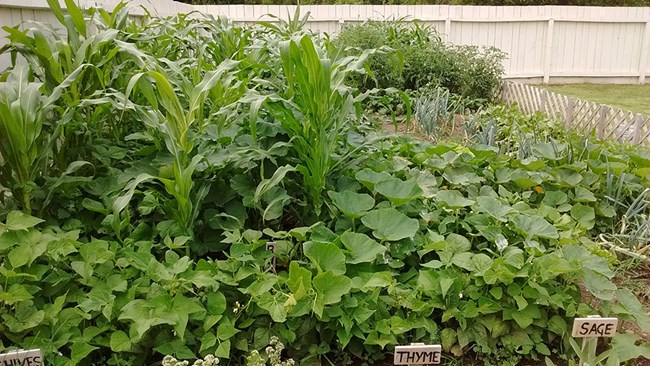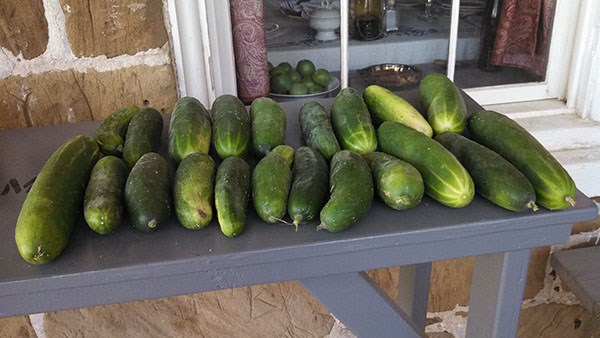Heritage Garden
Like a ship at sea, 19th century frontier forts sitting in the middle of a vast sea of prairie grass, found it hard to get fresh food. Before the days of refrigeration, or even the railroad for fairly quick delivery of goods, food at Fort Larned was mostly salted beef, bread or hardtack, and beans. And like the sailors on those sailing ships of old, this nutritionally poor diet led to a big problem with scurvy for the soldiers. It's no wonder that many of the officers and enlisted men took the trouble to plant vegetable gardens in the summer.
|
|

Each spring we plant historic vegetable seeds and nurture them throughout the growing season to help tell this unique aspect of frontier miliary life - the struggle for fresh vegetables. You can find the garden behind the North Officers' Quarters in a fenced area. |
Using the Right Seeds |

NPS Photo Any historic garden needs historic seeds to grow the kinds of vegetables the people of that time period would have grown. |
Last updated: August 7, 2024
